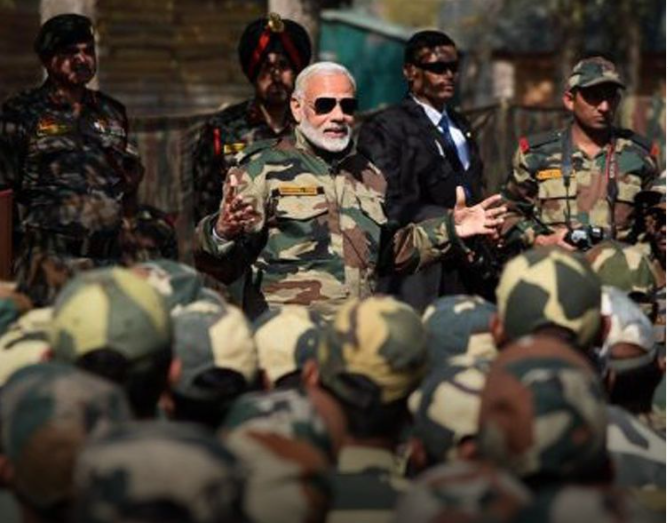
Adistrict court in Uttar Pradesh has issued a notice to the Prime Minister’s Office over the Indian Army uniform that PM Modi wore last year on his visit to Kashmir. The observation came after a plea was filed at the court in Prayagraj that stated that wearing garb or carrying token used by soldier, sailor or airman is an offence punishable under Section 140 of the Indian Penal Code.
As per Dainik Bhaskar reports, district judge Nalin Kumar Srivastava issued a notice to the PMO as well as Advocate Rakesh Nath Pandey, who had moved the application under section 156(3) of the Code of Criminal Procedure (which empowers Magistrate to order an investigation into a cognizable offence).
It was reported by Amar Ujala that in December 21, 2021, the aforesaid application moved by Pandey was rejected by the Chief Judicial Magistrate Harendra Nath.
The Magistrate said that the incident did not take place within the jurisdiction of the court and the matter can be heard by a Magistrate having jurisdiction.
This order was challenged by Pandey before the District Judge who has now issued notice to PMO.
Last year, PM Modi had celebrated Diwali with the soldiers at Nowshera sector in Jammu and Kashmir. Addressing the soldiers on the occasion of Diwali at Nowshera, the prime minister highlighted government’s attempts to boost indigenous capabilities and noted that modern border infrastructure has been built to augment connectivity and troop deployment.
During his visit, PM Modi said, “I have spent each Diwali with soldiers guarding our borders. Today, I have brought along with me the blessings of crores of Indians for our soldiers here.”
According to India’s constitutional order, the armed force of the country owes its loyalty to the President of India, who is its Commander-in-Chief. It is also, in the name of the President, who symbolises the Head of State, that the government headed by the prime minister carries out its functions.













































